Operation Vineta
Named after a mythical vanished city in the Baltics, the Vineta project began operations in early June 1941, a few days before Nazi invasion of the Soviet Union. Vineta’s key figure was Wilfried K. Strick-Strickfeldt, who also reported to Reinhard Gehlen, the head of the intelligence-analytical department of the “Foreign Armies of the East” (FremdeHeere Ost) during the war, who would work for the U.S. intelligence services later.
One of Vineta’s central missions was to generate propaganda through so-called secret (or “black”) radio stations (Geheimsender). The listener was given the impression that radio stations were working from the territory under Soviet control on behalf of underground anti-Stalinist organizations. Such legendary Nazi radio stations acted against various opponents of the Third Reich, and they were united in the “Concordia” project of the Propaganda Ministry. Its head, Goebbels, repeatedly wrote in his diary: “We work for Russia by three secret radio stations: the first is Trotskyite, the second is separatist, the third is national Russian. Everyone is sharply against the Stalinist regime. Here we let all possible bombs explode and use tricks that proved themselves during the campaign in the West” (June 30, 1941).¹
Just as during the Wehrmacht’s “French campaign,” these radio stations called for a separatist peace, tried to create mass panic and civilian flight to complicate the military logistics, and attempted to divide the troops along ethnic lines. Along with the Russian editorial office, Vineta had a very large (up to 50 employees) Ukrainian and smaller (up to 10 employees each) Belarusian, Latvian, Lithuanian, Estonian, Azerbaijani, Georgian sections. Then “Vineta” employees and collaborants from Nazi and migrated to the different US abroad radio stations.² They conducted propaganda in a nationalist spirit and were hostile to each other.
A joint project of Nazi civil and military propagandists
Vineta was a joint brainchild of Wehrmacht Propaganda IV Division (OKW/WPr IV) and the Vostok Department (Abteilung Ost) of the Imperial Ministry of Propaganda. The OKW/WPr IV was headed by Colonel Hans-Leo Martin, who was also a liaison officer between OKW and the Goebbels propaganda ministry. The East Department of the Imperial Propaganda Ministry (Reichsministerium für Volksaufklärung und Propaganda) was headed by Eberhard Taubert, who had long been actively involved in anti-communist propaganda (from 1933, he headed the Anti-Comintern agency, which published anti-Soviet books and magazines).
Taubert explained the reasons for creating Vineta in this way. Before the coming war, there was a need to form a second propaganda apparatus [after Anti-Comintern—Igor Petrov]. Already, in the first days of the war, secret radio stations were to start broadcasting in the most important Eastern languages, i.e., not only in Russian, but also in Ukrainian, Belarusian, Estonian, and Latvian. When crossing the border, the troops were to have at their disposal posters, leaflets, records for loudspeaker broadcasts, films with Russian voice, etc.³
Formally, Vineta was not a subdivision of the Ministry of Propaganda, but a registered non‑profit organization (eingetragener Verein) that even had its own charter, but all of the financing wasprovided through Goebbels. Its first director was Heinrich Kurz, who had previously served in Krakow’s Propaganda Department. According to him, the first tasks of the group were quite utilitarian: making posters, signs and announcements (such as “No Entry to the premises” or “Order on Registration of Qualified Workers”), which were to be used by the troops after crossing the Soviet border, as well as preparing appeals to the population according to the templates of the Eastern Ministry. Later, propaganda material was added—from leaflets to radio broadcasts—based on directives and theses sent from the Propaganda Ministry. A separate group transcribed place names on military maps from the Cyrillic alphabet to the Latin alphabet.
Vineta first radio broadcasts aired at 10 am on June 22, 1941. Rosenberg’s appeal and Goebbels’ speech, which outlined the well-known theory of preventive strike against the USSR, were put on the air. The propaganda theses, to which front reports were added, were initially broadcast in six languages (Estonian, Lithuanian, Latvian, Belarusian, Ukrainian and Russian) through transmitters in Germany and Warsaw, and, as Nazi troops moved eastwards, through the stations of the occupied cities: Lviv, Minsk, and Baranovichi. The main theses were appeals to the population to prevent the Red Army from moving and inviting soldiers to desert. “In addition, the radio frequencies of Soviet planes and tanks were used for direct propaganda for Soviet pilots and tankers. Morning hours were chosen for the transmission time, because, according to experience, at that time the tanks and planes in the front zone were on alert and, therefore, were very likely to hear the broadcasts.”⁴
The program editors had at their disposal a wealth of analytical material: secret front reports, protocols of interrogations of prisoners and defectors, transcripts of the Soviet radio stations’ “wiretapping.” The programs did not allow the Nazi top to be touched or directly called upon to spurn the Wehrmacht. On the contrary, participants were encouraged to talk about the necessity of separate peace and about the fact that the war between Germany and the USSR only benefited “Western plutocrats.”
Vineta’s personnel
Soviet prisoners of war were not recruited to work at Vineta. After the beginning of the war, only the son of the famous economist Igor Mikhailovich Bogolepov, was caught by the Germans and joined Vineta.
But the real “star” of German Russian-speaking broadcasting was the Moscow artist Vsevolod Blumenthal-Tamarin, who was taken by the Germans near Moscow in November 1941. Already, in January 1942, he was brought to Berlin where he enlisted in the Vineta staff. Officially, he served as an announcer, but he also read his own memories of life in the USSR and wrote feuilletons and political pamphlets while in front of the microphone. His speeches recorded on German radio Warsaw were broadcast in the occupied territories of the USSR. Imitating Stalin’s voice, Blumenthal-Tamarin even falsified Soviet government decrees. Apparently, his parodies of Stalin were so successful that he became one of the first collaborators sentenced to death in absentia by the military board of the Soviet Supreme Court. The memories of his fellow immigrants, however, paint a not‑so‑cute image of a drunken antisemitic actor “chanting the Germans, sycophanting without soap” and not bent on denouncing his colleagues.
On May 10, 1945, he was found hanging from a tree in Munzingen “under unclear circumstances;” for a long time it was considered a suicide, but he could have been killed by his wife’s nephew, an illegal scout of the Moscow State Security Service, who had taken his archive to the USSR. In 1993, Blumenthal-Tamarin was rehabilitated by the Supreme Court of the Russian Federation.⁵
Among other “Vineta” employees suspected as Soviet agents was a former actor of the Chamber Theater, Evgeny Viber, who came to Germany a few years before the war and became one of the first employees of Vineta. He headed a translation group, participated in the interrogation of Iakov Dzhugashvili, Stalin’s on (see below), and facilitated the employment of many Russian employees in Vineta, in particular Alexander Albov (see below) and Moscow Art Theatre actor Sergei Sverchkov.
On the other hand, another Vineta translator, Sergey Nabokov, the writer’s younger brother, was arrested by the Nazis in December 1943 for “statements hostile to the state” (according to available evidence, he spoke positively either about the British bombing of Berlin or about Great Britain in general), and died in January 1945 in a concentration camp.
VinetaTrotskyite radio propaganda
Vineta’s “Trotskyist” radio station, “Lenin’s Old Guard,” was headed by Karl Albrecht, a German who had made his career in the USSR, but was arrested in 1932 (either for using prisoners’ labor in logging or for molesting minors). At the request of German Communists, Albrecht was released and moved to Germany, where he was arrested by the Gestapo. He fled to Turkey, but upon his return to Germany, he wrote a book that made him a wealthy man. The book was called Devoted Socialism and told how Stalin and his comrades-in-arms moved away from the right course. The Goebbels agency, Anti-Comintern, published it with a total circulation of over two million copies.
Thanks to the radio intercepts preserved in the TASS archive, one can roughly imagine what the programs of the radio station “Lenin’s Old Guard” (German name “Concordia V,” aired one hour a day since June 29, 1941) looked like. In one program, fictitious Leninists from different parts of the Soviet Union, from Moscow and Leningrad to the Caucasus and Siberia, were conducting roll-call; in another program, they were giving instructions to their imaginary agents; in the third, they were broadcasting front reports.⁶
Among those who worked for the “Trotskyist” radio was Alexandr Albov, a civil war veteran, who later served as a correspondent for United Press in the Balkans. Albrecht recalled that he had selected seven people for his “Leninist” radio station: two colonels, three junior officers and two soldiers. As early as August 1941, Soviet prisoners of war were actively involved in propaganda, including, of course, the most famous of them at the time — Stalin’s son, Yakov Djugashvili. Hitlerites managed to deceive him into saying several anti-Soviet phrases, which were recorded on tape and put on the air.⁷
VinettaRussian nationalist radio propaganda
Vineta’s second “black” radio station “was called “For Russia” (Za Rossiyu, German name “Concordia Y,” aired 40 minutes a day since June 30, 1941), supervised by an employee of the Eastern Ministry, a German Russian, Rudolf von Knupffer. The radio specialized in nationalist propaganda, and its staff was dominated by members of the New Generation National Labor Union (NTLU). The radio station was headed by Dmitrii V. Brunst (1909–1970), a member of NTS Executive Committee.
The author of one of the most famous false sensations of this radio station was Lev Vladimirovich Dudin, who, before the war had been Candidate of Philological Sciences, Head of the Department of Foreign Languages at Kiev State University, and then became editor-in-chief of a number of collaborationist newspapers, and deputy head of the Main Directorate of Propaganda of the Vlasov KONR. After the war he worked in Germany and the United States as an interpreter, teacher, and journalist at Radio Liberty and Free Europe. During his time at Vineta, he invented a fake story abouthow Stalinallegedly decided to rent out Murmansk and Baku to the Anglo-Americans for 99 years. This fairy tale would then be repeated in the first issues of Vlasov’s newspaper Zarya. However, in the summer of 1942, this editorial board was disbanded.
The end of Vineta
On July 1, 1942, Goebbels wrote in his diary: “I discuss the issue of secret radio stations. In my opinion, the methods of secret radio broadcasting are outdated. A secret radio station can have an impact if it is used for a short time, namely in critical situations. Clandestine radio stations, which have been operating for two years and are not very promising, should be turned off... Some covert radio stations working against the USSR are also not very successful, because they are not generally listened to”. The “ineffective” editorial office of the nationalist radio station “To Russia” was immediately shut down.⁸
On the contrary, the “Old Lenin Guard” was highly praised and remained on the air at least until December 1943. It got disbanded when a Swedish newspapers suddenly wrote about it, claiming that the radio transmitter of the “Old Leninists” was actually in Germany, while the “Leninists” who approached the microphone were in fact working for the German Ministry of Propaganda (which was true).
According to historian Igor Petrov, “In 1943–1944, Vineta further expanded through theatrical troupes that provided cultural services to Russian volunteers. But the organization gradually lost its prominent role in the ideological struggle against the USSR. The gap between the generous propaganda promises and the Nazi leadership’s firm unwillingness to make any political compromises in the occupied territories led to the collapse of the Nazi propaganda concept and contributed to the defeat of the Reich”.⁹
After the disbandment of the nationalist radio station “For Russia,” the transmitter (German name “Geheimsender Z”) was used for nationalist propaganda to transmit encrypted instructions for German agents in the Soviet rear. It was somehow connected with the Zeppelin organization, created by the SS to prepare and throw saboteurs. The name of the new radio station—“Battle Union of the Russian People”—worked well with the cells Zeppelin’s agents had to create in the Soviet rear in order to deploy armed uprisings.
One of Vineta’s central missions was to generate propaganda through so-called secret (or “black”) radio stations (Geheimsender). The listener was given the impression that radio stations were working from the territory under Soviet control on behalf of underground anti-Stalinist organizations. Such legendary Nazi radio stations acted against various opponents of the Third Reich, and they were united in the “Concordia” project of the Propaganda Ministry. Its head, Goebbels, repeatedly wrote in his diary: “We work for Russia by three secret radio stations: the first is Trotskyite, the second is separatist, the third is national Russian. Everyone is sharply against the Stalinist regime. Here we let all possible bombs explode and use tricks that proved themselves during the campaign in the West” (June 30, 1941).¹
Just as during the Wehrmacht’s “French campaign,” these radio stations called for a separatist peace, tried to create mass panic and civilian flight to complicate the military logistics, and attempted to divide the troops along ethnic lines. Along with the Russian editorial office, Vineta had a very large (up to 50 employees) Ukrainian and smaller (up to 10 employees each) Belarusian, Latvian, Lithuanian, Estonian, Azerbaijani, Georgian sections. Then “Vineta” employees and collaborants from Nazi and migrated to the different US abroad radio stations.² They conducted propaganda in a nationalist spirit and were hostile to each other.
A joint project of Nazi civil and military propagandists
Vineta was a joint brainchild of Wehrmacht Propaganda IV Division (OKW/WPr IV) and the Vostok Department (Abteilung Ost) of the Imperial Ministry of Propaganda. The OKW/WPr IV was headed by Colonel Hans-Leo Martin, who was also a liaison officer between OKW and the Goebbels propaganda ministry. The East Department of the Imperial Propaganda Ministry (Reichsministerium für Volksaufklärung und Propaganda) was headed by Eberhard Taubert, who had long been actively involved in anti-communist propaganda (from 1933, he headed the Anti-Comintern agency, which published anti-Soviet books and magazines).
Taubert explained the reasons for creating Vineta in this way. Before the coming war, there was a need to form a second propaganda apparatus [after Anti-Comintern—Igor Petrov]. Already, in the first days of the war, secret radio stations were to start broadcasting in the most important Eastern languages, i.e., not only in Russian, but also in Ukrainian, Belarusian, Estonian, and Latvian. When crossing the border, the troops were to have at their disposal posters, leaflets, records for loudspeaker broadcasts, films with Russian voice, etc.³
Formally, Vineta was not a subdivision of the Ministry of Propaganda, but a registered non‑profit organization (eingetragener Verein) that even had its own charter, but all of the financing wasprovided through Goebbels. Its first director was Heinrich Kurz, who had previously served in Krakow’s Propaganda Department. According to him, the first tasks of the group were quite utilitarian: making posters, signs and announcements (such as “No Entry to the premises” or “Order on Registration of Qualified Workers”), which were to be used by the troops after crossing the Soviet border, as well as preparing appeals to the population according to the templates of the Eastern Ministry. Later, propaganda material was added—from leaflets to radio broadcasts—based on directives and theses sent from the Propaganda Ministry. A separate group transcribed place names on military maps from the Cyrillic alphabet to the Latin alphabet.
Vineta first radio broadcasts aired at 10 am on June 22, 1941. Rosenberg’s appeal and Goebbels’ speech, which outlined the well-known theory of preventive strike against the USSR, were put on the air. The propaganda theses, to which front reports were added, were initially broadcast in six languages (Estonian, Lithuanian, Latvian, Belarusian, Ukrainian and Russian) through transmitters in Germany and Warsaw, and, as Nazi troops moved eastwards, through the stations of the occupied cities: Lviv, Minsk, and Baranovichi. The main theses were appeals to the population to prevent the Red Army from moving and inviting soldiers to desert. “In addition, the radio frequencies of Soviet planes and tanks were used for direct propaganda for Soviet pilots and tankers. Morning hours were chosen for the transmission time, because, according to experience, at that time the tanks and planes in the front zone were on alert and, therefore, were very likely to hear the broadcasts.”⁴
The program editors had at their disposal a wealth of analytical material: secret front reports, protocols of interrogations of prisoners and defectors, transcripts of the Soviet radio stations’ “wiretapping.” The programs did not allow the Nazi top to be touched or directly called upon to spurn the Wehrmacht. On the contrary, participants were encouraged to talk about the necessity of separate peace and about the fact that the war between Germany and the USSR only benefited “Western plutocrats.”
Vineta’s personnel
Soviet prisoners of war were not recruited to work at Vineta. After the beginning of the war, only the son of the famous economist Igor Mikhailovich Bogolepov, was caught by the Germans and joined Vineta.
But the real “star” of German Russian-speaking broadcasting was the Moscow artist Vsevolod Blumenthal-Tamarin, who was taken by the Germans near Moscow in November 1941. Already, in January 1942, he was brought to Berlin where he enlisted in the Vineta staff. Officially, he served as an announcer, but he also read his own memories of life in the USSR and wrote feuilletons and political pamphlets while in front of the microphone. His speeches recorded on German radio Warsaw were broadcast in the occupied territories of the USSR. Imitating Stalin’s voice, Blumenthal-Tamarin even falsified Soviet government decrees. Apparently, his parodies of Stalin were so successful that he became one of the first collaborators sentenced to death in absentia by the military board of the Soviet Supreme Court. The memories of his fellow immigrants, however, paint a not‑so‑cute image of a drunken antisemitic actor “chanting the Germans, sycophanting without soap” and not bent on denouncing his colleagues.
On May 10, 1945, he was found hanging from a tree in Munzingen “under unclear circumstances;” for a long time it was considered a suicide, but he could have been killed by his wife’s nephew, an illegal scout of the Moscow State Security Service, who had taken his archive to the USSR. In 1993, Blumenthal-Tamarin was rehabilitated by the Supreme Court of the Russian Federation.⁵
Among other “Vineta” employees suspected as Soviet agents was a former actor of the Chamber Theater, Evgeny Viber, who came to Germany a few years before the war and became one of the first employees of Vineta. He headed a translation group, participated in the interrogation of Iakov Dzhugashvili, Stalin’s on (see below), and facilitated the employment of many Russian employees in Vineta, in particular Alexander Albov (see below) and Moscow Art Theatre actor Sergei Sverchkov.
On the other hand, another Vineta translator, Sergey Nabokov, the writer’s younger brother, was arrested by the Nazis in December 1943 for “statements hostile to the state” (according to available evidence, he spoke positively either about the British bombing of Berlin or about Great Britain in general), and died in January 1945 in a concentration camp.
VinetaTrotskyite radio propaganda
Vineta’s “Trotskyist” radio station, “Lenin’s Old Guard,” was headed by Karl Albrecht, a German who had made his career in the USSR, but was arrested in 1932 (either for using prisoners’ labor in logging or for molesting minors). At the request of German Communists, Albrecht was released and moved to Germany, where he was arrested by the Gestapo. He fled to Turkey, but upon his return to Germany, he wrote a book that made him a wealthy man. The book was called Devoted Socialism and told how Stalin and his comrades-in-arms moved away from the right course. The Goebbels agency, Anti-Comintern, published it with a total circulation of over two million copies.
Thanks to the radio intercepts preserved in the TASS archive, one can roughly imagine what the programs of the radio station “Lenin’s Old Guard” (German name “Concordia V,” aired one hour a day since June 29, 1941) looked like. In one program, fictitious Leninists from different parts of the Soviet Union, from Moscow and Leningrad to the Caucasus and Siberia, were conducting roll-call; in another program, they were giving instructions to their imaginary agents; in the third, they were broadcasting front reports.⁶
Among those who worked for the “Trotskyist” radio was Alexandr Albov, a civil war veteran, who later served as a correspondent for United Press in the Balkans. Albrecht recalled that he had selected seven people for his “Leninist” radio station: two colonels, three junior officers and two soldiers. As early as August 1941, Soviet prisoners of war were actively involved in propaganda, including, of course, the most famous of them at the time — Stalin’s son, Yakov Djugashvili. Hitlerites managed to deceive him into saying several anti-Soviet phrases, which were recorded on tape and put on the air.⁷
VinettaRussian nationalist radio propaganda
Vineta’s second “black” radio station “was called “For Russia” (Za Rossiyu, German name “Concordia Y,” aired 40 minutes a day since June 30, 1941), supervised by an employee of the Eastern Ministry, a German Russian, Rudolf von Knupffer. The radio specialized in nationalist propaganda, and its staff was dominated by members of the New Generation National Labor Union (NTLU). The radio station was headed by Dmitrii V. Brunst (1909–1970), a member of NTS Executive Committee.
The author of one of the most famous false sensations of this radio station was Lev Vladimirovich Dudin, who, before the war had been Candidate of Philological Sciences, Head of the Department of Foreign Languages at Kiev State University, and then became editor-in-chief of a number of collaborationist newspapers, and deputy head of the Main Directorate of Propaganda of the Vlasov KONR. After the war he worked in Germany and the United States as an interpreter, teacher, and journalist at Radio Liberty and Free Europe. During his time at Vineta, he invented a fake story abouthow Stalinallegedly decided to rent out Murmansk and Baku to the Anglo-Americans for 99 years. This fairy tale would then be repeated in the first issues of Vlasov’s newspaper Zarya. However, in the summer of 1942, this editorial board was disbanded.
The end of Vineta
On July 1, 1942, Goebbels wrote in his diary: “I discuss the issue of secret radio stations. In my opinion, the methods of secret radio broadcasting are outdated. A secret radio station can have an impact if it is used for a short time, namely in critical situations. Clandestine radio stations, which have been operating for two years and are not very promising, should be turned off... Some covert radio stations working against the USSR are also not very successful, because they are not generally listened to”. The “ineffective” editorial office of the nationalist radio station “To Russia” was immediately shut down.⁸
On the contrary, the “Old Lenin Guard” was highly praised and remained on the air at least until December 1943. It got disbanded when a Swedish newspapers suddenly wrote about it, claiming that the radio transmitter of the “Old Leninists” was actually in Germany, while the “Leninists” who approached the microphone were in fact working for the German Ministry of Propaganda (which was true).
According to historian Igor Petrov, “In 1943–1944, Vineta further expanded through theatrical troupes that provided cultural services to Russian volunteers. But the organization gradually lost its prominent role in the ideological struggle against the USSR. The gap between the generous propaganda promises and the Nazi leadership’s firm unwillingness to make any political compromises in the occupied territories led to the collapse of the Nazi propaganda concept and contributed to the defeat of the Reich”.⁹
After the disbandment of the nationalist radio station “For Russia,” the transmitter (German name “Geheimsender Z”) was used for nationalist propaganda to transmit encrypted instructions for German agents in the Soviet rear. It was somehow connected with the Zeppelin organization, created by the SS to prepare and throw saboteurs. The name of the new radio station—“Battle Union of the Russian People”—worked well with the cells Zeppelin’s agents had to create in the Soviet rear in order to deploy armed uprisings.
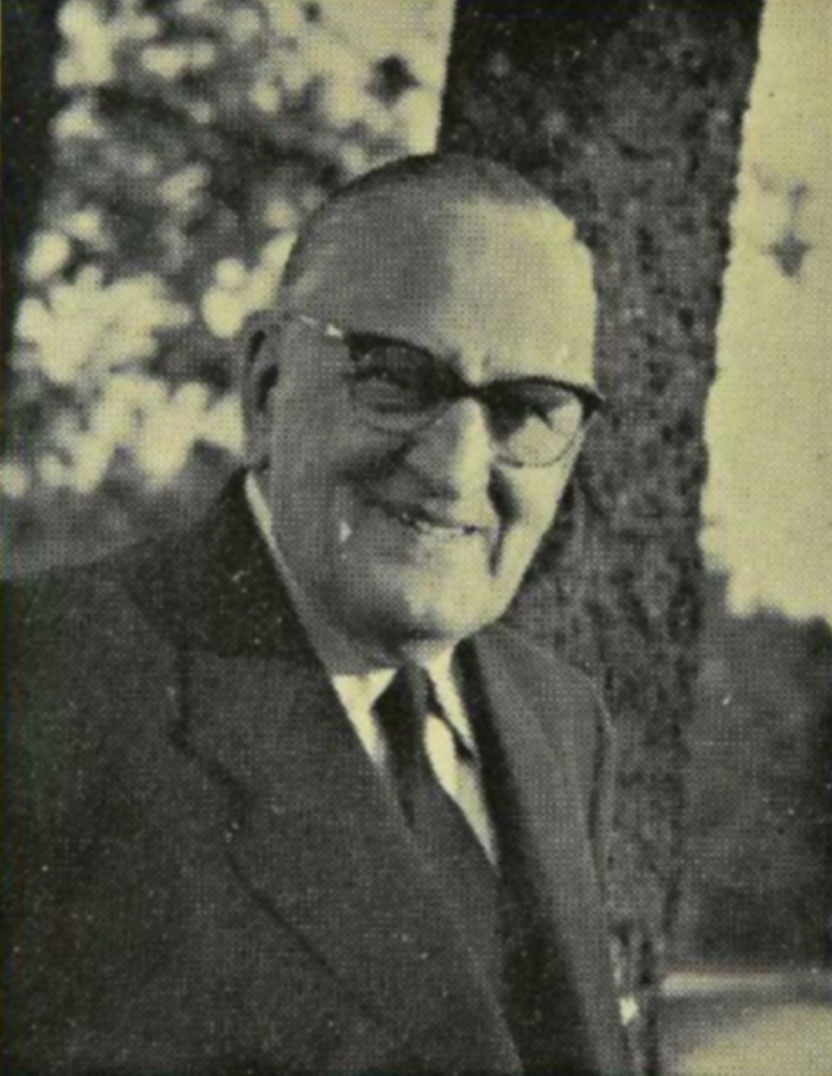
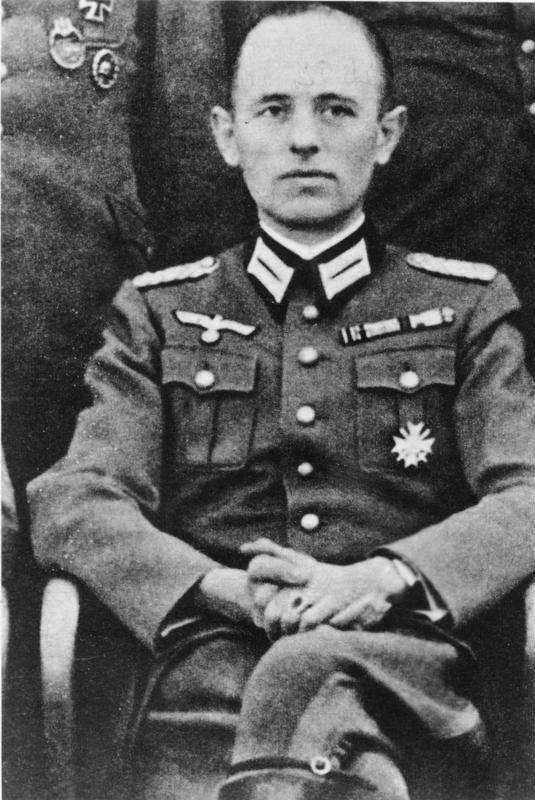

Alexandr Albov (1902–1989)
Source
Source
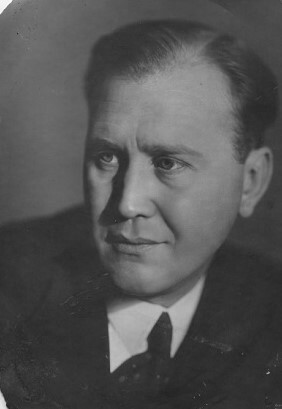
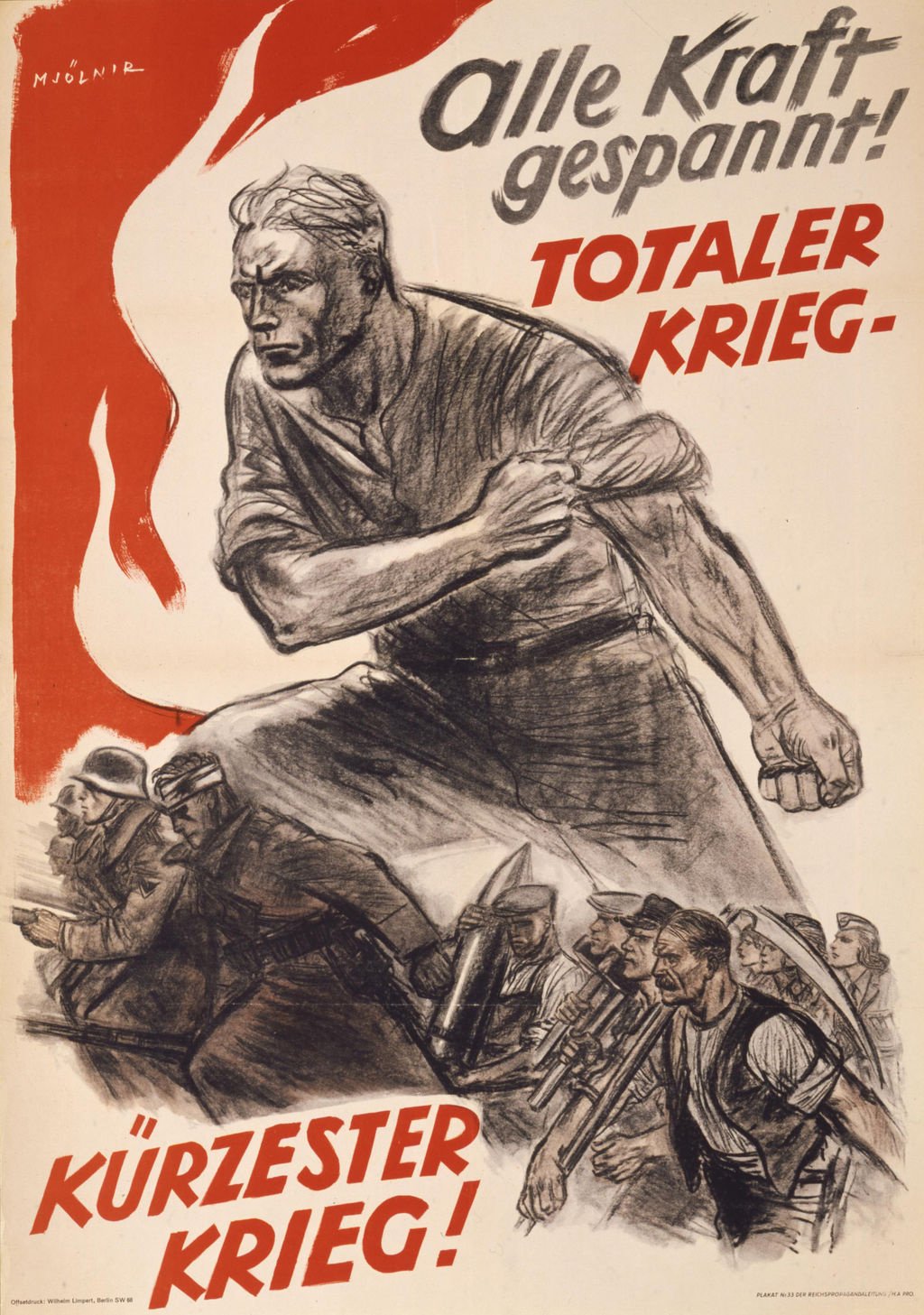
Poster of the German Ministry of Propaganda
Source
Source
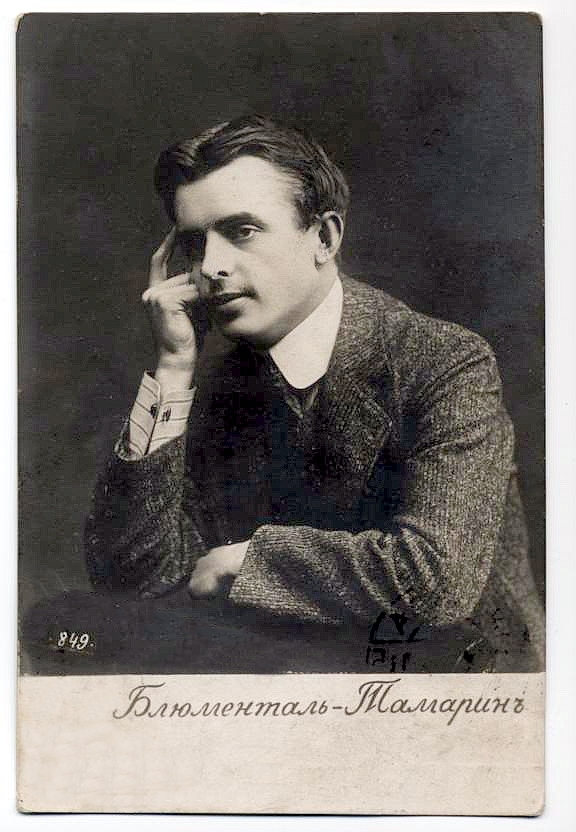

Vlasov's newspaper "Zarya", 1943
Source
Source
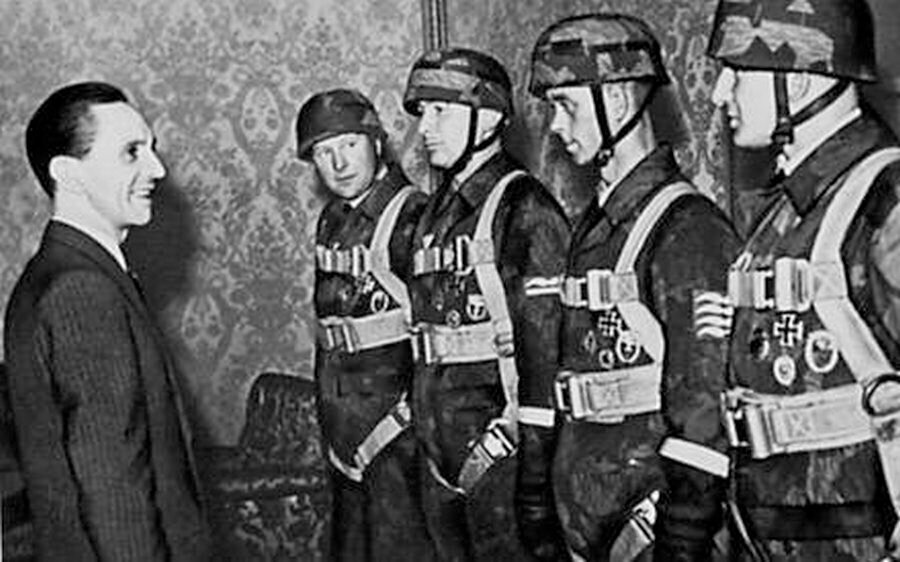
Organization Zeppelin
Source
Source

Content Oriented Web
Make great presentations, longreads, and landing pages, as well as photo stories, blogs, lookbooks, and all other kinds of content oriented projects.
[1] Joseph Goebbels Tagebücher. 1924 -1945, Hrsg. Ralf Georg Reuth. (München: Piper Verlag GmbH, 1999). Bd. 4, 1614.
[2] Igor’ Bogolepov I. V otmschenie za Madrid. N/d, 118; Vladimir Ivanov, Natsistskie voennye prestupniki i ikh pokroviteli (Moscow: Znanie, 1985), 46; Vadim Kassis, et. al. Za kulisami diversii (Moscow: Izvestia, 1979), 120 – 122.
[3] Igor Petrov, “’I dukh Lenina iszchez s ochen’ strannym zvukom’: uchrezhdenie Vinety i natsistkaia radiopropaganda protiv SSSR,” Neprikosnovennyj zapas 108, no. 4 (2016), 207.
[4] Ibid., 208.
[5] Ibid, 221; “Auf Russisch: Iz lichnogo arkhiva Vsevoloda Bliumental’-Tamarina”, Teatr, no. 8 (2012), 193.
[6] Igor Petrov, 210.
[7] Ibid., 212.
[8] Ibid., 217.
[9] Ibid., 221.
[2] Igor’ Bogolepov I. V otmschenie za Madrid. N/d, 118; Vladimir Ivanov, Natsistskie voennye prestupniki i ikh pokroviteli (Moscow: Znanie, 1985), 46; Vadim Kassis, et. al. Za kulisami diversii (Moscow: Izvestia, 1979), 120 – 122.
[3] Igor Petrov, “’I dukh Lenina iszchez s ochen’ strannym zvukom’: uchrezhdenie Vinety i natsistkaia radiopropaganda protiv SSSR,” Neprikosnovennyj zapas 108, no. 4 (2016), 207.
[4] Ibid., 208.
[5] Ibid, 221; “Auf Russisch: Iz lichnogo arkhiva Vsevoloda Bliumental’-Tamarina”, Teatr, no. 8 (2012), 193.
[6] Igor Petrov, 210.
[7] Ibid., 212.
[8] Ibid., 217.
[9] Ibid., 221.